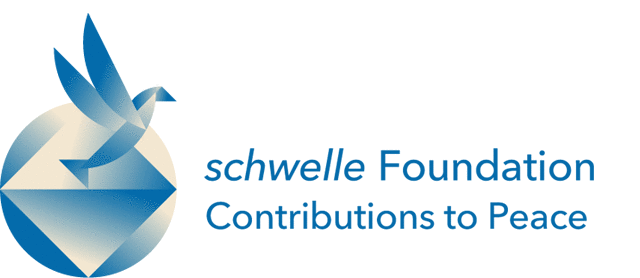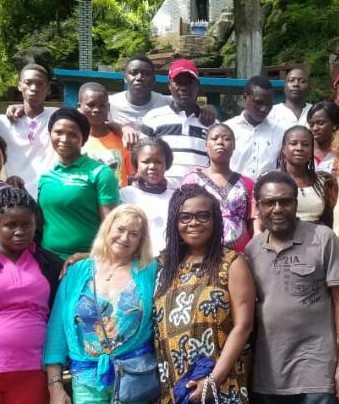Aim of the project: Supporting young people
The PEA primarily wants to enable young people to exchange ideas with each other through regular meeting points and inform them about current topics, e.g. through poster campaigns and radio programmes by young people for young people. In addition, the PEA pursues social goals by supporting unemployed young people in their professional orientation and individual children from poor families or orphans by paying their school fees. In addition, self-help projects for young people are supported and promoted, e.g. by providing tools for craftsmen.
Highlight: the annual work camps
The PEA has its own meeting centre, the "Mini-Village Espérance" in Agome-Tomegbé near Kpalimé, the main town in the prefecture of Kloto, about 120 km north of the capital Lomé. Seminars, interreligious and intercultural meetings and work camps are organised here as well as in two other places with young people from all regions and social classes.
The work camps are the first opportunity for many of the 30-40 participants to meet people with different religious or ethnic backgrounds and different political convictions. Content such as human rights, rights and duties in a democratic state, recent and older history of Togo form the background for sensitising people to non-violent conflict resolution and ethically and religiously based reconciliation work.
Cultural expression such as dance, music and theatre as well as participatory methods of non-violent communication and conflict resolution are used for this purpose.<br /> The young people are then accompanied in their respective environments as multipliers for non-violence and reconciliation.
Togo and its youth
Togo is a relatively small country on the Gulf of Guinea with about 7.8 million inhabitants, divided into many different ethnic and language groups. It is estimated that 2 million Togolese have left the country for political or economic reasons. With a gross domestic product of 611.10 per inhabitant, Togo is one of the poorest countries in the world.
After more than three decades of repressive autocratic rule, characterised by a dictatorial one-party system and supported by a quasi-ethnic army, a democratic multi-party system based on the rule of law has been called for since the 1990s. After initial successes, the country has been in a prolonged crisis for 25 years, characterised by confrontation between the ruling power and the opposition parties.
The youth in Togo play an essential role in political mobilisation, but are also misused by the protagonists of the different camps for their interests and sometimes radicalised. It is among them that most of the victims of violence during demonstrations are to be found.
The rural youth contribute significantly to the production of food but also market crops (cotton). Increasing fluctuations in the usual weather rhythm, however, make it difficult to secure an income.
As a result of the political unrest, regular schooling and vocational training is often limited, leading to impoverishment but also loss of social and ethical orientation. The Corona pandemic has exacerbated this situation. The consequences are unemployment, employment in precarious informal situations, further impoverishment and a lack of perspective.


